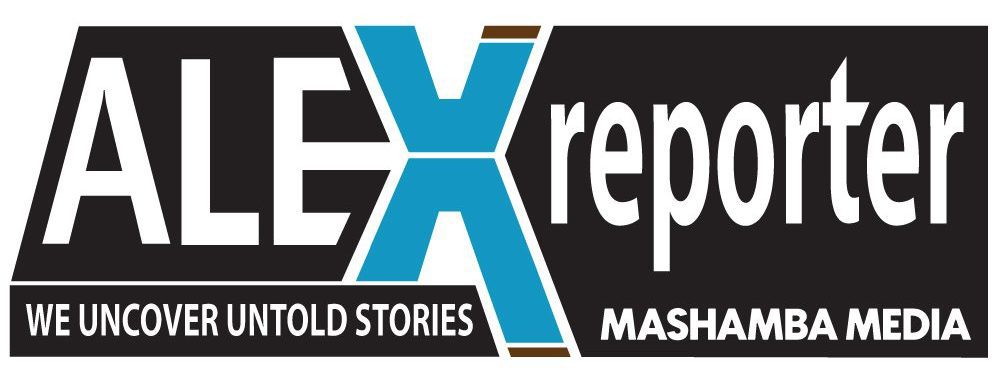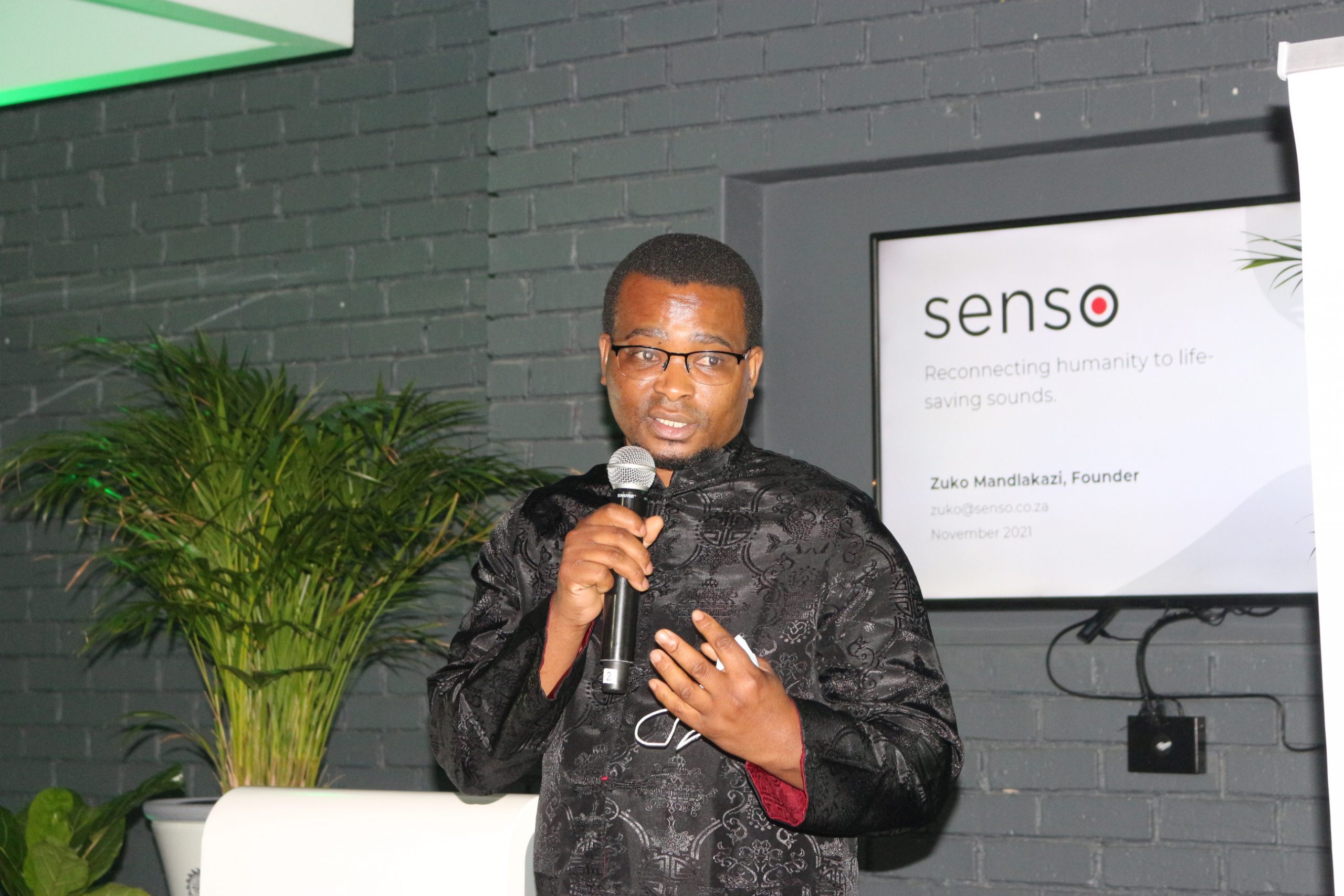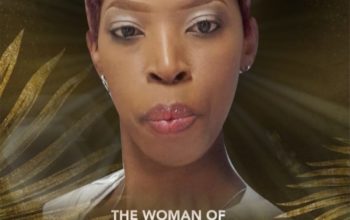By Staff Reporter
news@alexreporter.co.za
On the 26 November 2021, the Tshimologong Digital Innovation Precinct hosted academics, ambassadors and entrepreneurs to celebrate the 5th anniversary of the creation of Africa’s digital entrepreneurs.
The much-anticipated event, held in Braamfontein, Johannesburg, was attended by over 50 delegates from different countries.
The event was marked by the launch of the ‘Mollo’ digital animation studio that offers an internationally accredited 2D animation program which is the first of its kind in South Africa. ‘Mollo’ is a Setswana name referring to fire.
“Tshimologong is the only studio that focuses on producing traditionally drawn 2D animation. Most South African studious focus on 3D or cut out animation which only simulates 2D.
“The skills we teach are an art form and ensure the product we put out has a unique aesthetic you would be hard pressed to find elsewhere in South Africa,” said Lesley Donna Williams, CEO of Tshimologong Precinct.
The studio is open to the public and to those who wish to make a career in animation.
The event also highlighted key milestones and accomplishments since its inception by Professor Barry Dwolatzky in 2016.
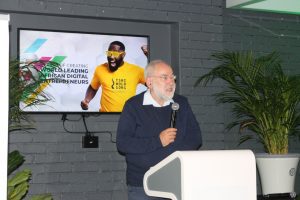
According to the online publication, Animation World Network, South Africa has the most diverse animation output of any nation on the African continent, both in terms of style and medium, followed by Egypt and Kenya.
Tshimologong Precinct’s ‘Mollo’ animation studio presents exciting opportunities for young people in South Africa to develop animation content that remains competitive with the rest of the world.
According to Professor Barry Dwolatzky, who founded the Wits Tshimologong Precinct, Braamfontein could become South Africa’s Silicon Valley.
“The launch of Mollo Animation studio, seeks to bridge the digital skills shortage in the creative and animation industry,” said Dwolatzky.
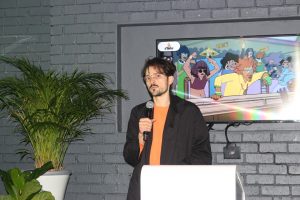
Gender inequality is one of South Africa’s greatest challenges. There is no equal representation of women in the digital space.
At the moment, the world is witnessing 16 days of activism against the abuse of women and children.
In conversations, there is a call for women to be represented and compensated equally in important and less well-known industries.
To challenge the status quo and embrace more women who are shaping the digital industry, Tshimologng Precinct developed a program that focuses mainly on women in the digital space, called Yabasadi, meaning ‘for women’ in Setswana.
Yabasadi is an 4IR incubation program aimed at women-owned enterprises. The program focuses on women who possess a strong knowledge and understanding of how technology can grow their businesses in the digital era.
Many young women have taken advantage of the program since its inception.
One of the beneficiaries is Mamanoke Lucia Shabangu who won the Yabasadi Program Pitch for her invention of the Virtual Intelligence (VI) App that allows golf enthusiasts to connect and play golf together virtually. The invention was influenced by her endless passion of golf sport.
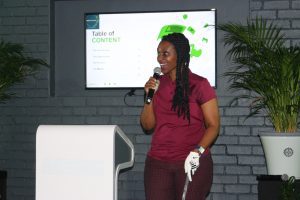
Tshimologong remains committed to healthcare innovation in South Africa.
The global COVID-19 pandemic has changed the way people do things every day, from working remotely, to attending virtual meetings and adopting healthier habits as part of the new standard.
Innovations from Tshimologong, like Senso and Pelebox, are shaping the South African health industry. These innovations have improved access to health care facilities and medicines for inhabitants of rural and disadvantaged areas.
Patients with chronic disease (like tuberculosis, heart disease, stroke, arthritis, etc.) will now have access to medication without waiting in long queues in local clinics and health care facilities.
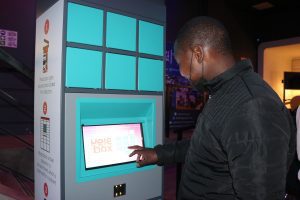
Neo Hutiri is the founder of Pele Box, a digital platform that manages various internet-enabled lockers. Pele Box is a smarter locker that allows patients with chronic diseases to take their medicine at their nearest clinic without standing for hours in long queues.
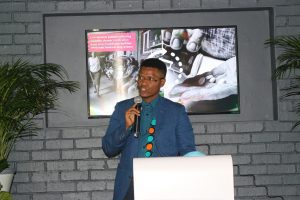
Each year on the 3rd of December, South Africa celebrates National Disability Awareness Month, as a way to promote the health and well-being of people living with disabilities in all areas of society and development.
A Statistics SA report indicates that the prevalence of disability in South Africa is 7.5%.
To highlight this important day, Zuko Madlakazi, one of the beneficiaries of the
Tshimologong Digital Innovation Precinct, invented a digital innovation solution that helps deaf people dictate sounds they struggle with.
Zuko is the founder and CEO of Senso, which has developed the first portable detection device to assist the hearing impaired.
The Senso is a portable wristwatch-like device that makes it possible for the deaf to identify important sounds that would otherwise be missed.
The device consists of three buttons- a power button and two that can be used to coordinate up to five different sounds with colors that flash in a form of an LED light.
The introduction of his device was influenced by his aunt’s deafness, concerns for how difficult it was for people to communicate with her, and concerns about her safety due to a lack of hearing.
Digital transformation is a game-changer on the African continent. It has the potential to stimulate economic growth, reduce poverty and improve the lives of people.
It can also help create jobs in many key sectors of the economy and connect Africa’s markets.
